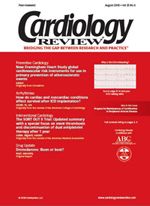Of mice and men and pioglitazone: Drug figures in 2 new studies
Pioglitazone may lower cardiovascular risk in diabetic patients with kidney disease
For patients at very high risk of serious cardiovascular events due to diabetes and chronic kidney disease (CKD), the antidiabetic drug pioglitazone may have a role in reducing that risk, according to research published in the January issue of the Journal of the American Society of Nephrology.
The research was conducted by an international team of authors headed by Christian A. Schneider of Klinik III für Innere Medizin, University of Cologne, Cologne, Germany, and was funded by Takeda Pharmaceutical Company, the manufacturer of pioglitazone.
This post-hoc analysis is based on data collected for the Prospective Pioglitazone Clinical Trial in Macro-Vascular Events (PROactive) study, a large-scale study of more than 5000 patients with type 2 diabetes who were at high cardiovascular risk because of macrovascular complications of diabetes. In PROactive, patients were randomly assigned to treatment with the antidiabetic drug pioglitazone or an inactive placebo.
In this analysis, Dr Schneider and colleagues focused on a subset of 597 patients who had moderate-to-severe CKD in addition to diabetes and macrovascular disease.The CKD patients treated with pioglitazone versus placebo were compared for their rates of death or cardiovascular disease events, such as myocardial infarction (heart attack) and stroke.
Within the CKD group, patients assigned to pioglitazone had a significantly lower risk of death or cardiovascular events. Overall, the rate of death, myocardial infarction, or stroke was reduced by one third in patients taking pioglitazone, compared with placebo. Most of the reduction occurred among patients with lower levels of kidney function.
The authors caution, however, that although the data for this analysis were collected prospectively, the "analysis for the presence of CKD was defined and performed retrospectively and treatment randomization was not stratified by CKD. Because this could affect the reliability of the prognostic data, the conclusions about the beneficial effects of pioglitazone in patients with CKD must be viewed with caution."
Belly fat, heart disease, and a possible role for pioglitazone
A study in mice may help explain just how extra fat around the waistline increases the risk of heart disease in humans, say a team of researchers from the University of Michigan. The research will be published in a February issue of the journal Circulation, and has already been released on the journal’s website.
The Michigan researchers, led by Daniel Eitzman, MD, had been studying mice lacking the gene leptin, a hormone generated by fat cells. In an effort to get these obese mice to produce some leptin, the team transplanted clusters of visceral fat cells (the type of fat found around the belly) from normal mice of the same strain into the leptin-deficient mice. The fat transplants did produce leptin, but also became inflamed, attracting macrophages.
From there, researchers then attempted to determine what was causing the inflammation and its implications, and if there was a link between this inflammation and atherosclerosis.
In this controlled trial, mice were divided into 3 groups: 2 received fat transplants from normal mice (one group received visceral fat from waistlines, the other subcutaneous fat that occurs under the skin throughout the body), while the third group had the same operation that would be used to implant the fat in other mice. The mice receiving the visceral fat transplants developed atherosclerosis at a much-accelerated rate and experienced the same type of inflammation as the leptin-deficient mice had. Meanwhile, those that received subcutaneous fat did not experience an increase in atherosclerosis despite having increased inflammation. The mice that had the "sham" operations developed neither inflammation nor increased atherosclerosis.
In a final step, the researchers attempted to calm the inflammation and curb the atherosclerosis by treating the mice with pioglitazone, which is used primarily to treat diabetes but that also has an anti-inflammatory effect.
Pioglitazone did reduce both the concentration of macrophages and atherosclerosis in those mice that received transplants of visceral fat. But the drug had no effect in the other mice.
Although this treatment shows promise in animal models, in order to address this issue in humans, scientists will need to first identify a human biomarker of inflammatory fat.
